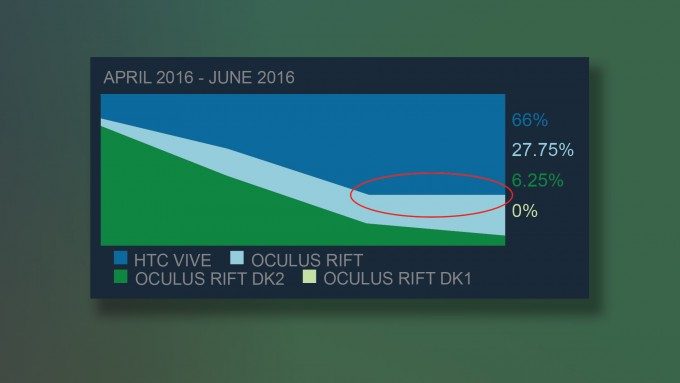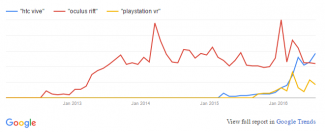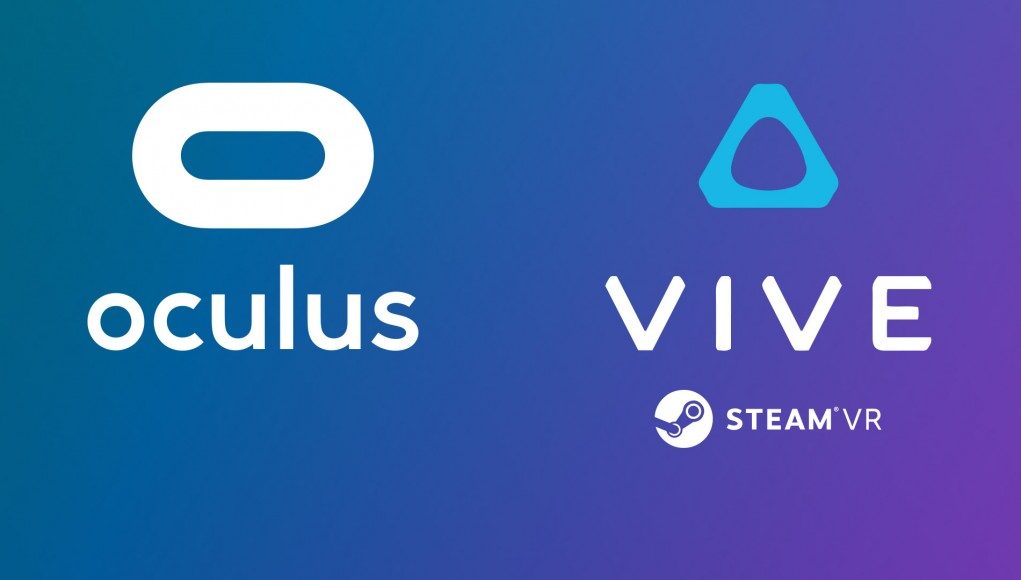There’s been a lot of talk about the latest data from Valve’s latest Steam Hardware & Software survey, most of it drawing erroneous conclusions about overall market share of VR headsets while missing out on a very interesting data point.

Each month, Valve runs a survey among Steam users to determine some baseline statistics about what kind of hardware and software is used by their population, and to see how things are changing over time.
It hasn’t been long since the company added a ‘VR Headsets’ section to the survey which gives a glimpse into which headsets are being used on Steam. It’s important to point out that while Steam supports the Oculus Rift, it isn’t the official content portal for the headset (that title belongs to Oculus Home). So without knowing what portion of people with an Oculus Rift are also using the headset with Steam, it’s tough to extrapolate conclusion beyond what’s actually being measured: which VR headsets are being used on Steam.

But that doesn’t mean there’s no useful data to come from the graph. In the last two data points, that flat line between the HTC Vive and Oculus Rift (CV1) tells us something interesting: number of Rift CV1 headsets reportedly in use on Steam has almost completely halted the market share growth of the HTC Vive.
| VR Headsets on Steam, April 2016 – June 2016 | ||||
| Period | 1 | 2 | 3 | 4 |
| HTC Vive | 16.2% | 37.9% | 66.6% | 66.0% |
| Oculus Rift CV1 | 4.7% | 18.8% | 19.5% | 27.8% |
| Oculus Rift DK2 | 79.1% | 43.4% | 13.9% | 6.3% |
Now what do I mean by ‘market share growth’? Surely more HTC Vive’s are being added to the market every day, but by market share (the percentage of all headsets owned), the latest data shows that the Vive has only barely managed to maintain its standing. Meanwhile, the Rift CV1 has seen a significant growth spurt, jumping from 19.5% to 27.8% of headsets on Steam between the last two data points. This tells us that a greater number of Rift CV1s have come online to Steam than Vives (with losses in the share of Rift DK2 development kits making way for the Rift’s gains) during this period.

Now there’s several different conclusions you might be tempted to leap to, but that would be premature. The data could be explained with a spike in Rift sales. It could be explained simply by Oculus finally hitting its stride in production capacity and shipping out a bunch of backlogged pre-orders. Hell, maybe somewhere on the internet, a big group of Rift owners just realized they could use their Rift with Steam in the first place. At this point we can’t say.
But there is more we can learn thanks to the data. Using the same method by which we estimated the number of HTC Vive sales, if we know that there was around 93,000 Vive headsets at the end of June, and that the Vive has a 66% market share at that time, then we can estimate that the consumer Oculus Rift’s share amounts to about 39,000 headsets attached to Steam. Now exactly what percent of all Rifts are connected to Steam (and therefore how representative that 39,000 unit figure is as a measure of all Rifts) is unknown.
While the Vive and Rift battle it out on desktop, console VR is soon to get its first headset in the form of PlayStation VR launching this October. Some analysts expect it may see the fastest adoption among the three. Meanwhile on mobile, Oculus announced back in May that Gear VR has seen 1 million monthly active users.







